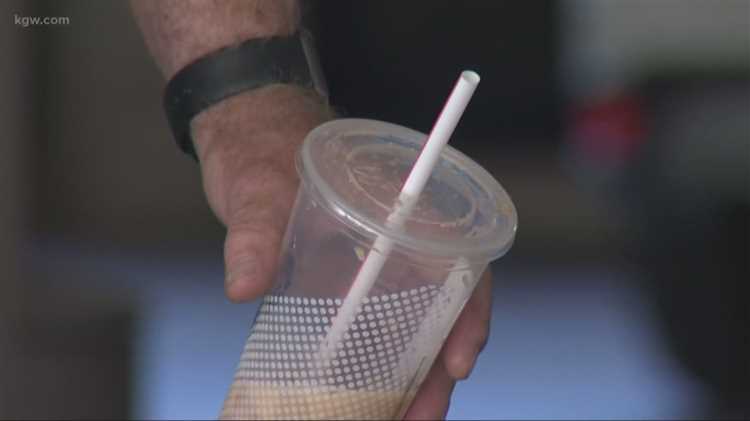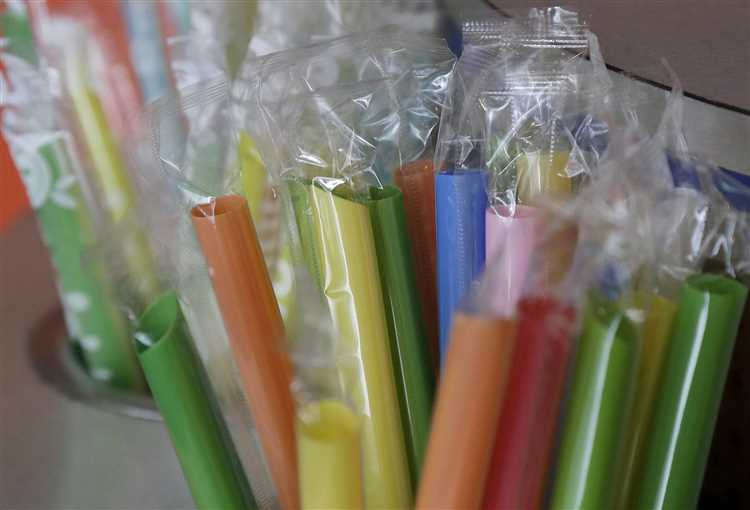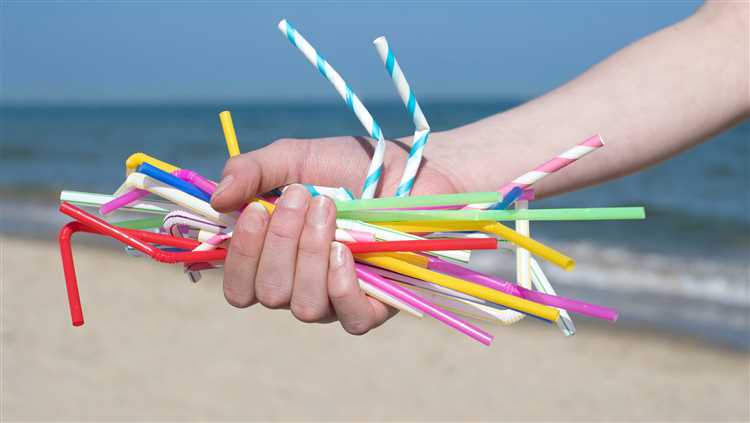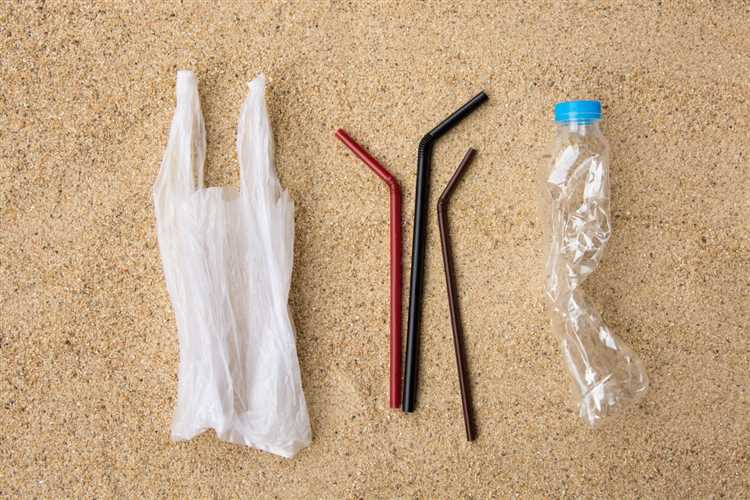In recent years, there has been a growing global concern about the environmental impact of single-use plastics, particularly plastic straws. Many countries and states have taken measures to reduce plastic waste, including implementing bans or restrictions on plastic straws. Oregon, known for its pristine natural landscapes and commitment to sustainability, has also addressed this issue.
Oregon is among the states that have implemented regulations to reduce plastic pollution. However, as of now, there is no comprehensive statewide ban on plastic straws in Oregon. The state has taken other steps to encourage the use of alternative products and promote sustainability.
Several cities in Oregon have taken the lead in banning or restricting plastic straws. The city of Portland implemented a plastic straw ban in October 2019, becoming the first city in the state to do so. This ban applies to bars and restaurants, who now offer plastic straw alternatives upon customer request. Other cities, such as Eugene and Corvallis, have also implemented similar regulations to curtail the use of plastic straws.
Despite the absence of a statewide ban, there is a growing awareness among individuals, businesses, and organizations about the harmful effects of plastic straws on the environment. Many restaurants and businesses across Oregon have voluntarily switched to biodegradable or compostable alternatives. Additionally, individuals are encouraged to bring their reusable straws when dining out or using beverages on the go.
While plastic straws are not yet banned statewide in Oregon, the efforts of individual cities and community-driven initiatives highlight the increasing urgency to address the issue of plastic waste. It is essential for individuals, businesses, and policymakers to work together to reduce, reuse, and recycle, and to explore innovative and sustainable alternatives to single-use plastics.
- The Issue with Plastic Straws
- Bans on Plastic Straws
- Oregon’s Stance on Plastic Straws
- The Alternatives
- Plastic Straw Regulations in Oregon
- Ban on Plastic Straws
- Exemptions
- Impact of the Ban
- 1. Environmental Impact
- 2. Business Impact
- 3. Individual Impact
- Alternatives to Plastic Straws
- 1. Paper Straws:
- 2. Stainless Steel Straws:
- 3. Bamboo Straws:
- 4. Glass Straws:
- Question-answer:
- Are plastic straws prohibited in Oregon?
- When did the ban on plastic straws in Oregon go into effect?
- Why were plastic straws banned in Oregon?
- Are there any exceptions to the plastic straw ban in Oregon?
- What are the alternatives to plastic straws in Oregon?
The Issue with Plastic Straws

Plastic straws have become a topic of growing concern in recent years due to their negative impact on the environment. A single plastic straw may seem insignificant, but when you consider the billions of straws that are used and discarded each year, their collective effect becomes clear.
One of the main issues with plastic straws is their contribution to plastic pollution. Many plastic straws are not biodegradable and can take hundreds of years to break down in the environment. As a result, they end up in landfills, oceans, and other natural habitats, posing a significant threat to wildlife and marine life.
In addition to their environmental impact, plastic straws also contribute to the depletion of fossil fuels. The production of plastic requires the extraction and processing of oil, which is a non-renewable resource. By using plastic straws, we are further contributing to the demand for oil and perpetuating our reliance on fossil fuels.
Furthermore, plastic straws are not essential for many individuals. While they may be convenient for some, alternatives such as paper straws, metal straws, or even no straw at all can easily be used instead. By reducing our reliance on plastic straws, we can help mitigate their negative impact on the environment.
Many individuals and organizations are advocating for the reduction or elimination of plastic straws. Some cities and states, like Oregon, have implemented regulations to reduce plastic straw usage. These regulations aim to encourage individuals and businesses to switch to more sustainable alternatives.
In conclusion, the issue with plastic straws lies in their negative impact on the environment, contribution to plastic pollution and depletion of fossil fuels, and their non-essential nature. Taking steps to reduce or eliminate plastic straw usage is an important way to address these issues and protect our environment for future generations.
Bans on Plastic Straws
Plastic straws have become a major environmental concern in recent years due to their negative impact on ecosystems and marine life. As a result, many cities and states across the United States have implemented bans or restrictions on the use of plastic straws.
Oregon’s Stance on Plastic Straws

Oregon has not yet implemented a statewide ban on plastic straws, but several cities within the state have taken action to reduce their use. For example, Portland, Eugene, and Corvallis have all passed ordinances that restrict the use of plastic straws in restaurants and other food establishments.
The Alternatives
Many establishments that have banned or restricted plastic straws have implemented alternative options for customers. These alternatives include paper straws, reusable metal straws, and even edible straws made from materials like pasta.
While the bans on plastic straws aim to reduce plastic waste and protect the environment, they have also sparked some controversy. Critics argue that the focus should be on reducing overall single-use plastic consumption, rather than targeting specific items like straws. Others suggest that individuals should have the freedom to choose whether or not to use plastic straws, and that education and awareness campaigns would be more effective than bans.
Overall, the movement to ban plastic straws is gaining momentum across the United States, and it is likely that more cities and states, including Oregon, will join the effort to reduce plastic waste in the future.
Plastic Straw Regulations in Oregon
Oregon has taken significant steps towards reducing plastic waste, including the implementation of regulations concerning the use of plastic straws. These regulations aim to reduce the negative environmental impact associated with single-use plastics.
Ban on Plastic Straws

As of July 1, 2021, Oregon has implemented a ban on plastic straws in many food service establishments. This ban prohibits the use of plastic straws unless specifically requested by the customer. The goal is to encourage the use of more sustainable alternatives, such as paper, metal, or reusable straws.
Exemptions
While the ban is wide-reaching, there are some exemptions in place. Plastic straws are still allowed in certain situations, such as for medical purposes or individuals with disabilities who require them for accessibility. Restaurants can also provide plastic straws upon customer request.
Implementation and Penalties
The enforcement of the plastic straw ban is conducted by state and local health departments. Food service establishments found to be in violation of the ban may be subject to penalties, including fines or the loss of their food service license.
It is important to note that the ban on plastic straws is just one part of Oregon’s broader efforts to reduce plastic waste and protect the environment. By implementing regulations and encouraging sustainable alternatives, Oregon is working towards creating a cleaner and more sustainable future.
Impact of the Ban
The ban on plastic straws in Oregon has had several significant impacts on the environment, businesses, and individuals.
1. Environmental Impact
By banning plastic straws, Oregon has taken a step towards reducing plastic waste and minimizing its impact on the environment. Plastic straws are non-biodegradable and can take hundreds of years to decompose. They often end up in landfills or as litter, contributing to pollution in rivers, oceans, and other natural habitats. The ban has helped in reducing plastic waste and protecting marine life from the harmful effects of plastic pollution.
2. Business Impact
The ban on plastic straws has also affected businesses in Oregon, particularly those in the food and beverage industry. Many businesses have had to switch to more sustainable alternatives such as paper, bamboo, or metal straws. This transition has required an initial investment in purchasing these alternatives and training staff on their proper use. However, it has also presented an opportunity for businesses to align with consumer preferences for eco-friendly options, gaining a competitive edge and attracting environmentally conscious customers.
3. Individual Impact
For individuals, the ban on plastic straws has meant a change in habits and a greater awareness of the environmental impact of plastic waste. People have had to adapt to using alternative straws or completely forgoing straws altogether. While it may seem like a small change, it has contributed to a larger shift in mindset towards reducing single-use plastic items. Individuals have also become more conscious of other products or materials that have negative environmental impacts, leading to more sustainable choices in other areas of their lives.
In conclusion, the ban on plastic straws in Oregon has had a positive impact on the environment by reducing plastic waste and protecting marine life. It has also affected businesses, encouraging them to adopt more sustainable practices. On an individual level, the ban has raised awareness about the harmful effects of plastic waste and led to a shift towards more eco-friendly choices.
Alternatives to Plastic Straws
As plastic straws gradually become banned in various parts of the world, it’s important to explore alternative options that are more eco-friendly and sustainable. Here are a few alternatives to plastic straws:
1. Paper Straws:
- Paper straws are a popular alternative to plastic straws. They are biodegradable and compostable, making them a more sustainable choice.
- Many restaurants and cafes have already made the switch to paper straws, allowing customers to enjoy their beverages without the negative environmental impact.
2. Stainless Steel Straws:

- Stainless steel straws are durable and reusable, making them a long-term solution to replace plastic straws.
- They are easy to clean and are often accompanied by a cleaning brush, ensuring that they can be reused for years.
3. Bamboo Straws:

- Bamboo straws are another sustainable alternative to plastic. They are biodegradable and can be used multiple times before they need to be disposed of.
- They give a unique natural touch to your drinks and are often handmade, making them a great choice for those who appreciate eco-friendly products.
4. Glass Straws:
- Glass straws are a stylish and reusable option. They are easy to clean, dishwasher safe, and provide a clear view of your drink.
- Although they may be more fragile compared to other alternatives, glass straws are a great choice for those who prioritize aesthetics and sustainability.
With these alternatives available, it’s easy to make the switch from plastic straws and contribute to a greener and more sustainable environment.
Question-answer:
Are plastic straws prohibited in Oregon?
Yes, plastic straws are banned in Oregon.
When did the ban on plastic straws in Oregon go into effect?
The ban on plastic straws in Oregon went into effect on January 1, 2020.
Why were plastic straws banned in Oregon?
Plastic straws were banned in Oregon to reduce plastic waste and protect the environment.
Are there any exceptions to the plastic straw ban in Oregon?
Yes, there are some exceptions to the plastic straw ban in Oregon. For example, individuals with disabilities or medical conditions that require the use of plastic straws may still use them.
What are the alternatives to plastic straws in Oregon?
There are several alternatives to plastic straws in Oregon, such as paper straws, metal straws, or reusable straws made of bamboo or silicone.